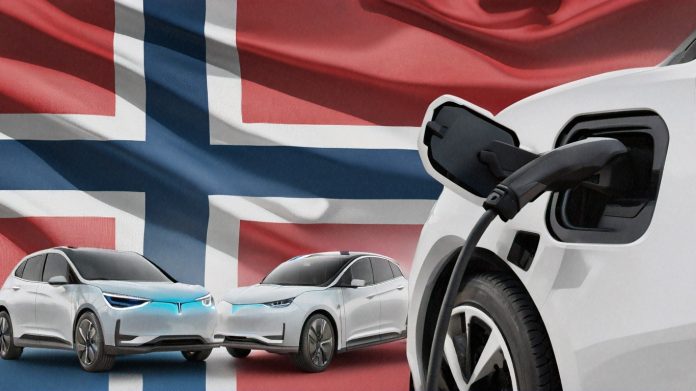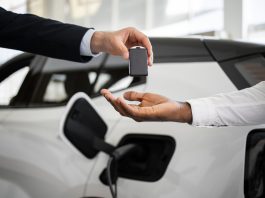Norway is on the brink of becoming the first nation in the world where fully electric vehicles dominate new car sales, marking a significant milestone in the global transition to sustainable transportation.
In 2024, nearly nine out of ten new cars sold in Norway were powered solely by batteries, a remarkable achievement fuelled by a combination of government incentives, progressive policies, and an environmentally conscious population.
Norway’s incredible achievement serves as an actionable framework that other European nations should closely follow, with the EU’s imminent 2035 ban on petrol and diesel cars looming.
Christina Bu, head of the Norwegian EV association, believes the country is on track to become the first to eradicate environmentally harmful means of transportation:
“Norway will be the first country in the world to pretty much erase petrol and diesel engine cars from the new car market.”
A nation of fully electric vehicles
According to the Norwegian Road Federation (OFV), fully electric vehicles accounted for 88.9% of new passenger car sales in 2024, a significant jump from 82.4% in 2023.
This steady growth positions Norway closer to its ambitious goal of ensuring that all new cars sold by 2025 are zero-emission vehicles, including battery electric and hydrogen-powered cars.
The leading brands in Norway’s EV market in 2024 were Tesla, Volkswagen, and Toyota, with Chinese manufacturers also making a notable impact, capturing nearly 10% of the market share.
Policy-driven success
Norway’s success in accelerating the adoption of fully electric vehicles is deeply rooted in its forward-thinking policies and incentives.
Unlike many oil-producing nations, Norway has embraced an aggressive strategy to discourage the use of petrol and diesel vehicles through high taxes while simultaneously incentivising EV adoption.
Key measures include:
- Tax incentives: Fully electric vehicles are exempt from the high purchase and import taxes levied on petrol and diesel cars. While some of these benefits were scaled back in 2023, such as the introduction of VAT on amounts exceeding 500,000 Norwegian kroner, EVs remain significantly more affordable than their fossil fuel counterparts.
- Polluter pays principle: Norway applies a progressive tax system where higher emissions result in higher taxes. This approach not only discourages the purchase of high-emission vehicles but also partially funds EV incentives.
- Reduced road and ferry charges: Electric vehicles benefit from reduced toll road fees and pay no more than 50% of the fare for fossil fuel vehicles on ferries.
Infrastructure supporting the EV boom
To ensure the practicality of fully electric vehicles, Norway has developed an extensive charging infrastructure.
By the end of 2022, over 5,600 fast-charging stations were operational, strategically located along major highways and urban centres.
Additionally, legislation introduced between 2017 and 2021 guarantees ‘charging rights’ for residents in apartment buildings, making EV ownership more accessible.
While most EV owners charge their vehicles at home, the availability of fast chargers for long-distance travel has been a key factor in driving adoption.
Consumers are willing to pay a premium for fast-charging services, which are priced at about three times the cost of home electricity.
A global inspiration
As Norway aims to achieve its 2025 goal of 100% zero-emission new car sales, the country serves as a blueprint for other nations seeking to transition to fully electric vehicles.
Norway’s achievements are a testament to the effectiveness of coordinated policies, financial incentives, and infrastructure development in driving the adoption of fully electric vehicles.
The European Union’s decision to ban the sale of carbon-emitting vehicles by 2035 echoes Norway’s pioneering efforts, with many countries looking to replicate its success.
As the nation approaches its 2025 zero-emission goal, it sets a powerful example for the rest of the world. By prioritising the environment and making fully electric vehicles more accessible, Norway is not just driving the future of transportation – it is accelerating it.









